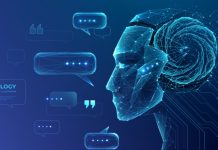
The blog aims to provide insights into how Machine Learning algorithms can be applied to improve various aspects of the DevOps process, such as continuous integration and deployment, resource utilization, and incident response. We will also explore the potential for Machine Learning to enhance the efficiency and reliability of DevOps practices through real-world examples and case studies.
Let’s dwell into the blog and unveil the tips and best practices for organizations that are looking to incorporate Machine Learning into their DevOps strategies.
Introduction to Machine Learning and its Applications
Machine learning is a subfield of artificial intelligence that focuses on enabling computers to improve their performance on a specific task through experience automatically.
It involves using algorithms and statistical models that can analyze and identify patterns in data and then use this knowledge to make predictions or decisions without being explicitly programmed.
Applications of machine learning include:
- Image and speech recognition
- Natural language processing (NLP)
- Fraud detection
- Recommender systems
- Healthcare and medical diagnosis
- Predictive maintenance in industries
- Customer behavior analysis
- Trading systems in finance
Machine learning has become increasingly popular due to the availability of big data and powerful computing resources, as well as the increasing complexity of tasks that require human-level intelligence.
Overview of DevOps and its Challenges
DevOps is a software development approach that emphasizes collaboration, communication, and integration between development and operations teams in order to accelerate the delivery of high-quality software.
In addition, it aims to reduce the time it takes to go from writing code to delivering a product to end-users.
Challenges in Implementing DevOps
- Culture change: breaking down silos and fostering collaboration between development and operations teams.
- Technical debt: legacy systems and outdated infrastructure can slow the delivery process.
- Integration of tools: different teams may use different tools, which can be challenging.
- Security: ensuring the security of the systems and applications during the continuous delivery process.
- Compliance: maintaining regulatory compliance while still delivering software quickly.
- Scalability: as the number of releases increases, it can become more difficult to manage the delivery process at scale.
DevOps requires a shift in mindset, tooling, and processes, but it can bring significant benefits in terms of faster market time, increased reliability, and improved collaboration between teams.
DevOps and Machine Learning – Integration
“Integrating Machine Learning into DevOps” refers to incorporating Machine Learning models and techniques into the DevOps workflows and processes.
This integration aims to automate and optimize various DevOps tasks, such as:
- Continuous Integration and Continuous Deployment (CI/CD) pipelines: Machine Learning can be used to optimize build and deployment of pipelines, for example, by automating code reviews, detecting and resolving conflicts, and predicting potential bugs.
- Monitoring and Log Analysis: Machine Learning algorithms can be used to analyze logs and other operational data in real time, enabling faster identification and resolution of issues.
- Predictive Maintenance: Machine Learning can predict and prevent infrastructure failures by analyzing system logs, performance metrics, and other operational data.
- Resource Optimization: Machine Learning algorithms can optimize resource utilization and allocate resources dynamically, reducing waste and improving efficiency.
Organizations can improve their software development and deployment processes’ speed, reliability, and efficiency by integrating workflow in DevOps and Machine Learning.
However, integration of Machine Learning and DevOps requires careful consideration of data quality, model selection and training, and deployment and maintenance, among other factors.
Enroll in DevOps Courses by Invensis Learning and elevate your career to the next level!
Challenges for Applying Machine Learning in DevOps
Machine learning and DevOps have the potential to complement each other, but several challenges in applying machine learning in DevOps need to be addressed:
- Data Quality: Machine learning algorithms rely on high-quality data to make accurate predictions. Ensuring that the data used in DevOps is complete, accurate, and relevant is a challenge.
- Integration with existing tools and processes: Integrating machine learning algorithms and models into existing DevOps processes and tools can be challenging, requiring significant changes to workflows and tools.
- Model Selection and Validation: Selecting the right machine learning algorithm and model can be a complex process, and validating that the models are accurate and reliable can be difficult.
- Model Maintenance: Machine learning models need to be maintained and updated as new data becomes available and as the model ages. This can be a time-consuming and resource-intensive task.
- Model Explainability: Machine learning models often need to be clearer and easier to interpret, making it difficult for stakeholders to understand the decisions made by the models. This can limit their adoption and impact on DevOps processes.
- Privacy and security: Machine learning algorithms require access to sensitive data, which raises privacy and security concerns. Ensuring that the data used in DevOps is protected and that the algorithms are secure is a challenge.
While machine learning has the potential to bring significant benefits to DevOps, these challenges must be addressed to ensure that the algorithms and models are accurate, reliable, and secure.
Addressing these challenges requires a multi-disciplinary approach that involves collaboration between machine learning experts, DevOps teams, and other stakeholders.
Best Practices for Successful Machine Learning in DevOps
Here are some best practices for the successful integration of machine learning in DevOps:
- Collaboration: Data scientists, machine learning engineers, and DevOps teams are key to ensuring smooth integration.
- Automation: Automating the deployment process, including model training and testing, can speed up the development process and reduce the risk of errors.
- Monitoring: Monitoring the performance of machine learning models in production is important to ensure they continue to deliver the desired results.
- Version Control: Using version control systems such as Git to manage code changes, including machine learning models, is crucial for tracking and reproducing results.
- Data Management: Proper data management and governance are important to ensure that the quality and consistency of the data used to train and test machine learning models are maintained.
- Scalability: Consider scalability from the start and choose the appropriate infrastructure to handle data growth and models’ complexity.
- Security: Implementing appropriate security measures, such as encryption and access control, is important to protect sensitive data and models.
- Continuous Integration and Continuous Deployment (CI/CD): Implementing a CI/CD pipeline for machine learning models can help to ensure that changes are tested and deployed efficiently and consistently.
Case Studies of Successful Machine Learning in DevOps
-
Netflix
Netflix uses machine learning algorithms to improve its streaming service and provide a personalized experience to its users. They have integrated machine learning models into their DevOps pipeline, allowing for quick and efficient deployment of models into production.
This has enabled them to quickly iterate and improve their recommendation engine, leading to a better user experience and increased customer satisfaction.
-
Walmart
Walmart uses machine learning in its DevOps processes to optimize its supply chain and improve in-store inventory management. They can predict demand for products and adjust their supply chain in real time by analyzing data from various sources, such as sales and customer data.
This has helped Walmart to reduce waste, improve efficiency, and provide a better shopping experience for their customers. The integration of machine learning into Walmart’s DevOps processes has allowed them to respond quickly to changes in the market and stay ahead of the competition
Conclusion
The integration of DevOps and Machine Learning has the potential to revolutionize the way software development and operations are performed. By leveraging the power of artificial intelligence, DevOps teams can automate many manual tasks, improve the quality of their work, and deliver better software to their customers.
However, it’s important to approach this integration with caution and follow best practices such as collaboration, automation, monitoring, version control, data management, scalability, security, continuous integration, and continuous deployment.
In addition, implementing machine learning into DevOps requires combining technical skills and business acumen. Companies that effectively leverage these technologies will be well-positioned for success in the digital age.














